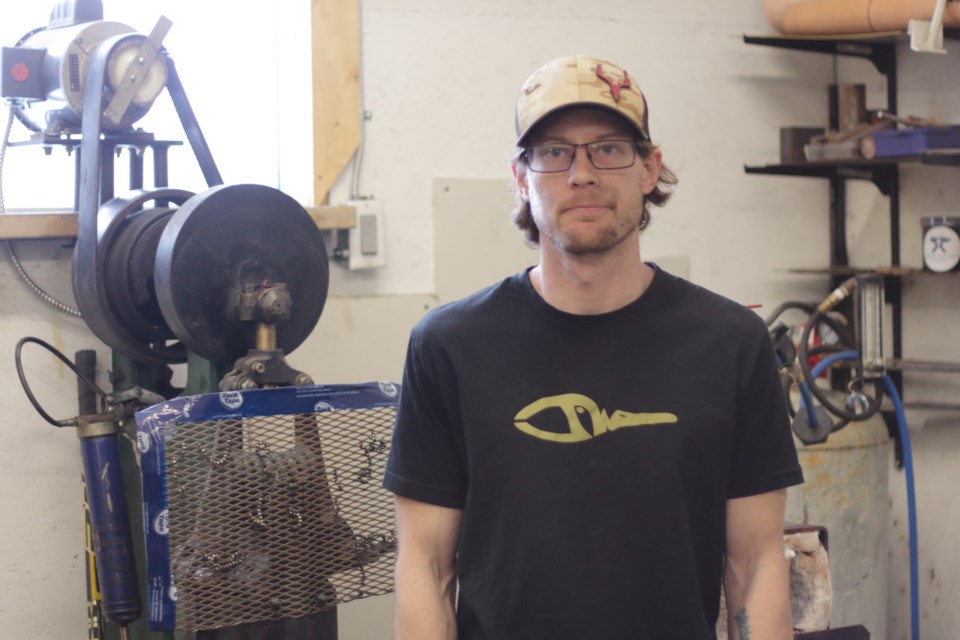YORKTON - Colton Yellowaga is a self-taught perfectionist who has found a niche market in classical knife smithing.
Yellowaga started his knife making aspirations in 2016 after watching an episode of American Craftsman on PBS. The episode had professional blade smith, Jerry Fisk, handcrafting a knife for Jesse James of West Coast Choppers/Monster Garage fame. “I’d carried knives from a young age,” said Yellowaga, “but I’d never knew what went into crafting them.”
Captivated by the prospect of being able to design his own knives, Yellowaga made it a point to sharpen his skills in the craft.
“The first thing I did was forge Damascus, because if I couldn't do that, I couldn't make knives,” said Yellowaga of his initial attempts. He went on to describe the process of fabricating the metal, which involves two or more steels that are layered, heated, and forged together several times.
“Different steels contain different properties, and some are much harder to work with,” explained Yellowaga. “Damascus is more expensive because of the time involved to manufacture it,” adding that the price for one of his Damascus knives can start at $175.00 per inch. “High end knives typically take two weeks from start to finish at full time hours.”
But Yellowaga said money was not his first motivation for starting to make knives.
“I never got into it for the money, I do it because I love it,” said Yellowaga, who currently works out of his garage where he has amassed several different tools to aid in the knife making process - tools of a knife smith such as an anvil for striking the forged metals and a kiln for applying heat treatments. He also owns a forge which he built himself. It runs on propane and reaches temperatures of 2000 degrees Fahrenheit at times. The purpose of the forge is for the shaping and forging of the different metals in use.
“I have no one to mentor me, so I learn from my own mess ups,” said Yellowaga. The most difficult thing he’s had to pick up is getting stainless to weld to high carbon steel, also known as San Mai. “I could forge weld, but for some reason I wasn’t getting good stainless forge welds. Then I got the [27 ton] press and she worked.”
Yellowaga, who educated himself on the basics of the subject by watching YouTube videos, additionally deals with the woodworking aspects of the trade when fashioning knife handles. The woods he uses are typically exotic and high end – Hawaiian Koa, African Blackwood, Curly Maple, Mammoth Ivory, and Carbon Fiber to name a few.
Yellowaga has also delved into leather work when it comes to the designing custom sheathes for the knives.
“Every day is a learning experience,” he said.
He estimates he's made over 100 knives since taking an interest in the craft and noted a handcrafted knife is defined by its longevity and diversity.
Every knife I make is unique,” he said. “I want to build knives that people will be able to pass down to their kids.”
And a knife should be functional too.
“At the end of the day I'm making art, but it's a tool that can be used,” Yellowaga said of the practical use of his creations. In his own personal collection, he has hunting knives, filleting, kitchen and pocketknives. All handcrafted from beginning to end by himself.
When asked about the meaning behind the name Cry Knives, Yellowaga stated, “it's my initials. Colton R. Yellowaga.”
For more information on Yellowaga's work visit CryKnives on Facebook and Instagram.





